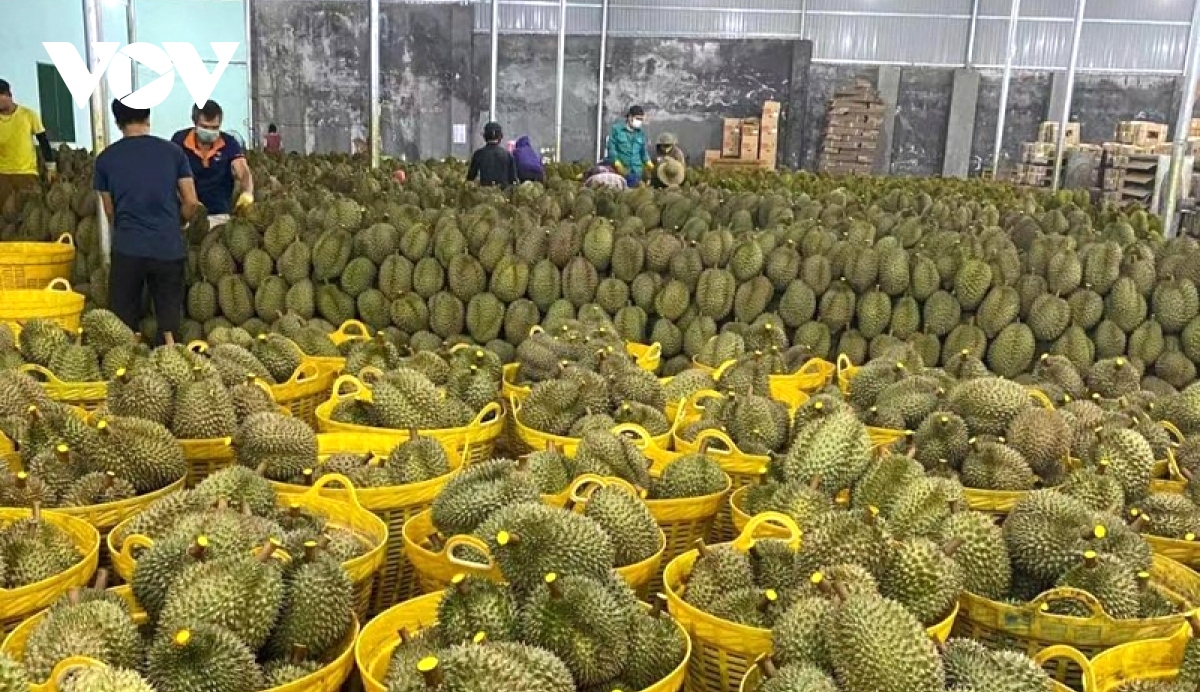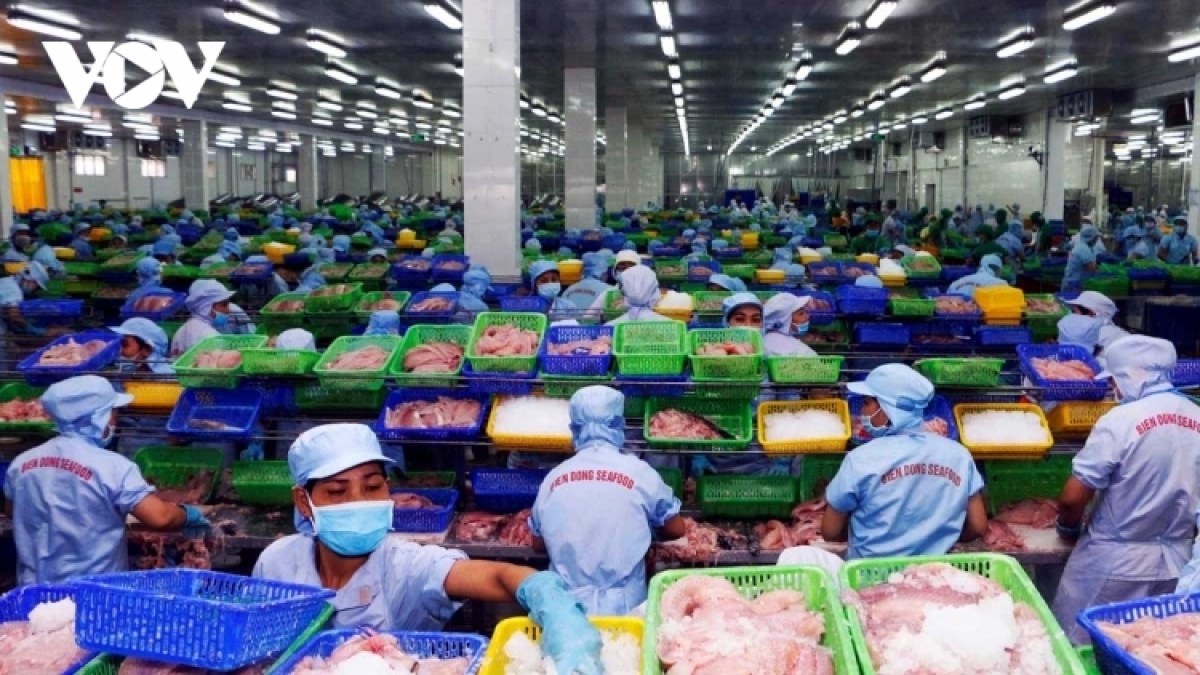Opportunities ahead to boost exports amid global market fluctuations
VOV.VN - The Ministry of Industry and Trade has warned that the global market will continue to be volatile ahead in the remaining months of the year, and local export businesses should keep a close tab on changes to seize opportunities.
Encouraging results

Vietnam fetched US$216 billion from exports during the past seven months, representing an annual rise of 16%. Indeed, high export growth helped the country maintain its trade surplus of more than US$760 million throughout the reviewed period.
Five groups of products with export turnover exceeding US$10 billion each are electronics, computers and components; telephones and components; machinery and equipment spare parts; garments and textile; and footwear.
Despite the rising costs of input materials coupled with global inflation, the export of agro-forestry and fishery products remains a bright spot in the overall economic picture, with the export value of these products hitting over US$32 billion during the opening seven months of the year, up 12% year-on-year.
Furthermore, fruit and vegetable exports recorded positive signs, after durians and passion fruit were officially exported to China, which is Vietnam’s largest trade partner, thereby opening up opportunities for both growers and businesses.
The past seven months also saw seafood maintain its upward trajectory in exports, raking in roughly US$6.7 billion, up 35% over the same period from last year.
Most notably, local businesses are ramping up the export of pangasius to Europe in order to partially replace Russia whose seafood exports to the continent are being disrupted due to sanctions imposed by Western countries.
“We all know that the COVID-19 pandemic in Europe and the United States has improved significantly at this time of the year compared to last year, so the demand for seafood will certainly increase till the end of the year,” said Ho Quoc Luc, chairman of the Board of Directors of Sao Ta Food Joint Stock Company.
Moreover, the EU - Vietnam Free Trade Agreement (EVFTA), which took effect in August 2020, offers favourable tax rates to shrimp and pangasius, both of which are key Vietnamese seafood export items. In addition to taking advantage of tariff preferences, it can be viewed as important that firms get deeply involved in the production, supply, and distribution chains of supermarket systems in Europe and many other countries globally, according to experts.
“What Vietnamese businesses need today is technology and an accurate approach to market needs,” said Nguyen Thao Hien, deputy director of the European - American Market Department under the Ministry of Industry and Trade.
“For markets, we have a system of trade offices that can support businesses and provide the latest updates,” Hien added.
Challenges and opportunities ahead

The Ministry of Industry and Trade forecasts that until the end of the year, exports are likely to encounter difficulties, especially when several major import markets of Vietnamese goods such as the United States and the EU are struggling to cope with the impact of inflation and a looming recession. Demand for household and consumer goods is therefore projected to sink, negatively impacting Vietnamese export activities.
Several businesses said there are currently signs of a slowdown in exports. For example, garments suffered a 7% fall in the export value in July compared to June. Experts noted that the US$43 billion export value target set for the garment sector this year is achievable, providing that garment makers keep a close watch on the market and grab opportunities from it.
“Only those who get market updates well and pioneer in negotiations and risk-taking, they will still be able to accomplish their goals,” said Le Tien Truong, chairman of the Board of Directors of the Vietnam National Textile and Garment Group.
Challenges and opportunities continue to be intertwined, particularly when Vietnam has a relatively high economic openness and its foreign trade turnover is twice as high as GDP. This is an opportunity for many businesses, especially when the macroeconomic situation has been properly managed by the Government in the direction of encouraging production and export activities.
“Business activities can only go smoothly when the macro economy is stable. A good control of the balance of payments, import and export activities and inflation creates advantages for businesses," noted Dau Anh Tuan, deputy general secretary of the Vietnam Chamber of Commerce and Industry.
Meanwhile, Tran Thanh Hai, deputy director of the Import-Export Department under the Ministry of Industry and Trade, assessed that Vietnam is making good use of various free trade agreements, including those that have been signed in recent years, targeting large markets, as well as those with high export growth.
Many large firms continue to choose the nation as a place to invest in thanks to the country’s stable investment environment. Many policies which will accelerate administrative reforms in import and export are also expected to fuel export growth, not only in the remaining months of this year, but also ahead over the coming years.
